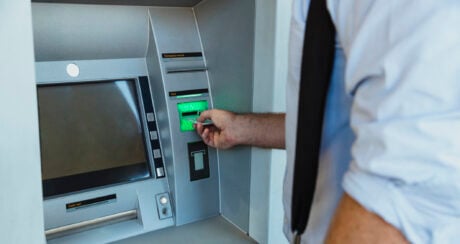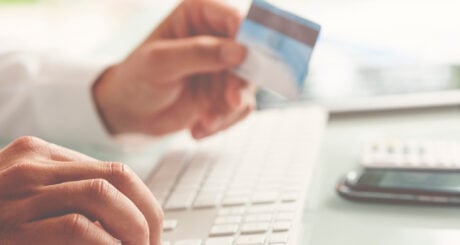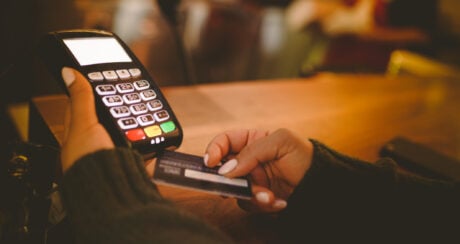While it’s possible to buy crypto with a credit card, using one to procure Bitcoin or another cryptocurrency can be a complex process. First, you’ll need to make sure your credit card company or bank won’t block the transaction. Then, you’ll need to weigh up the risks and added costs.
The state of crypto in Australia
One in four Australians owns cryptocurrency — digital assets, most popularly Bitcoin, that are bought and sold through exchange platforms. The underlying technology is blockchain, a decentralised system that manages and records transactions. It exists outside traditional finance and is called Decentralised Finance (DeFi).
Although a speculative, highly volatile asset class, there’s a growing interest in cryptocurrencies. From 2019-22, the number of Australians holding ‘crypto’ grew from 16.8% to 25.6%.
Some buy crypto from popular Australian exchanges, such as Swyftx and Bitcoin.com.au, that accept bank transfers and credit card deposits. Customers often connect a bank account to convert $AUD into cryptocurrencies.
However, doing so has become increasingly complicated as more banks have introduced restrictions on crypto transfers. Some are putting limits and temporary holds on transfers to digital currency sites, while others are blocking transactions altogether. Consumer access to crypto via banks is still being determined, which further adds risk to these speculative assets.
» MORE: How to use a credit card responsibly
The risks of buying Bitcoin and other types of crypto with a credit card
Assuming you find an exchange that does accept card payments and you have a bank that allows for crypto transfers, it’s still worth exploring if you should buy crypto with a credit card.
Banks blocking payments
Banks blocking crypto transactions is a contentious issue. The Big Four banks — CommBank, Westpac, NAB and ANZ — as well as smaller lenders, such as Bankwest and Bendigo Bank, have limits in place for crypto transactions.
Australian banks are citing safety issues and a lack of regulation clarity. NAB, for example, will automatically decline transactions using a credit or debit card on crypto exchanges. Consumers will be presented with an error message: ‘Issuer Declined Transaction’. NAB advises customers to contact these exchanges directly for alternative payment options.
Double fees from exchanges and banks
There could also be a credit card surcharge, a currency exchange fee (on international platforms), a brokerage fee and trading fees, depending on the bank and exchange platform.
Cash advance penalties
For banks that do allow payments to exchanges, it’s not a typical transaction. Some lenders consider crypto transactions as cash advances, which incur a fee and do not have an interest-free grace period. Between the bank and platform fees, you could pay up to 10% on the transaction. If you’re investing $2,000, the total fees could be $200. In addition, cash advances don’t earn rewards points, as it’s not deemed an eligible purchase.
Taking on debt to buy speculative assets
Using a credit card to purchase cryptocurrencies adds a layer of complexity to a financial product. On top of the fees — on both the bank and exchange side — there’s significant risk in buying crypto on debt.
As with all investments, the value is in the long-term compounding. Even if the cryptocurrency does go up, you won’t likely sell it. In other words, going into debt now for an investment you won’t sell for years, or maybe decades, isn’t a sound financial strategy for most people.
Potential losses
Digital currencies are risky investments, especially compared to stocks, bonds and real estate. Before considering crypto, it’s smart to focus on the fundamentals — pay off high-interest debt, build an emergency fund (of three to six months), and develop strong money-management habits.
Only then are you better positioned to consider riskier investments. Because crypto prices fluctuate dramatically, it’s important only to invest the amount you can afford to lose — or at least won’t see the returns for many years.
Lack of understanding
As a new asset class that’s technical for the average consumer, there’s an education component involved in crypto investing. Although the exchanges offer education resources to teach the basics of blockchain, it remains a barrier for everyday investors.
If you’re looking for a focal point for your finances, learn about cryptocurrencies, blockchain, and the underlying value in each currency (Bitcoin, Ethereum, Solana, Polygon, etc.). It’s an investment in your financial literacy, and digital currencies will likely find market maturity in time.
» MORE: Can you withdraw cash from a credit card?
How to buy Bitcoin with a credit card
There isn’t one standard process to follow across all exchanges. Each platform will have specific requirements, depending on whether it is Australian or international.
However, here’s a guideline of what you can expect:
- Research crypto exchanges that accept credit card payments.
- Create an account and verify your identity.
- Explore the exchange and its functionality. Learn about the different cryptocurrencies.
- Choose a cryptocurrency to buy. Bitcoin and Ethereum are the two biggest and most valuable cryptocurrencies.
- Connect to your bank and credit card to make the purchase. Be aware of $AUD versus $USD conversion-checking assets.
- Store your crypto. Many exchange platforms offer ‘wallet’ capabilities, but for greater safety, you can upgrade to a ‘cold wallet’, a physical device that stores your data offline.
Is it safe to use a credit card to buy crypto?
Credit cards come with greater security protections compared to debit cards. It’s best to do your due diligence to research the history and reputation of the exchange, as this is where the transacting will take place (if your bank allows crypto payments).
As with all investments, especially cryptocurrency, there are risks and potential rewards. However, in Australia, even buying crypto is tricky, depending on who you bank with. Ask if your bank allows crypto transactions, as not all exchanges accept credit card payments.
There are options, but the government is still considering how to regulate crypto, which will change how consumers invest in digital assets in the future. This regulation will likely help formalise the process and create greater safety and consumer confidence.
Diversification is the golden rule of investing. If you can confidently allocate a small portion of your assets to cryptocurrencies, it’s worth researching it. But even for the savviest investors, it’s likely best coming from your savings, not your credit card.
Frequently asked questions about buying crypto with a credit card
There is confusion over which Australian banks are crypto-friendly and how they treat cryptocurrency purchases via credit and debit cards. Some lenders consider these transactions as cash advances, which incur a fee and do not have an interest-free grace period.
If the bank doesn’t block crypto transactions and it accepts card payments, you will be able to use your debit account.
DIVE EVEN DEEPER

What to Know About Card Skimmers
A card skimmer is a device used to steal payment information at ATMs, EFTPOS terminals and other places you’d use a debit or credit card.

How to Spot and Avoid Credit Card Scams
Knowledge is power, so being able to spot the signs of credit card scams can help protect you and your money.

How Thieves Obtain And Use Stolen Credit Cards
Thieves obtain stolen credit cards through frauds and scams, and then use those card details to withdraw cash, buy items to resell, and more.

Can You Tap On With A Credit Card On A Train?
You can tap on with a credit or debit card on a train in Sydney, Newcastle, Brisbane, Gold Coast and Adelaide — and soon in Melbourne and Canberra.

